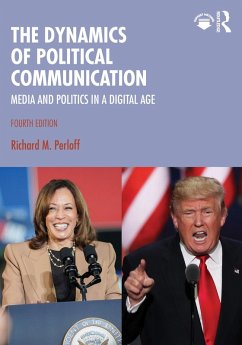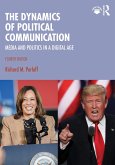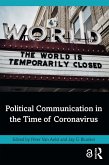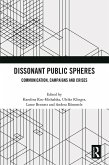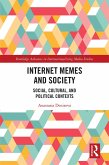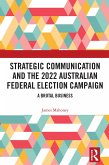The book explores the intersection between politics and communication, drawing from leading scholarship in communication, political science, and political psychology. It describes the nature of today's political media; political socialization; key media effects, such as agenda-setting and framing; myths, biases and facts in political news; political advertising and presidential debates. This edition includes new and expanded discussions of free speech and misinformation on social media, presidential rhetoric, the 2022 and 2024 election campaigns and the January 6th investigation narrative. It also examines international examples such as the Ukraine War, populism in Hungary and Turkey, Russian propaganda, and TikTok.
The book is ideally suited for upper-level undergraduate and graduate political communication courses in communication, journalism, and political science programs.
This edition again features online resources with links to relevant news articles, videos, or other online materials. For instructors, an instructor's manual, including sample syllabi, chapter outlines, sample discussion questions, sample test questions, and lecture slides are also provided. Access the support materials at www.routledge.com/9781032613130.
Dieser Download kann aus rechtlichen Gründen nur mit Rechnungsadresse in A, B, BG, CY, CZ, D, DK, EW, E, FIN, F, GR, HR, H, IRL, I, LT, L, LR, M, NL, PL, P, R, S, SLO, SK ausgeliefert werden.
"Perloff's The Dynamics of Political Communication remains a go-to reference for students and scholars, showing the richness and dynamic evolution of the field. This edition is full of insights on the shapeshifting contours of political communication and new evidence that help us reconsider standard theories, concepts and arguments."-Silvio Waisbord, George Washington University
"With the most recent edition of The Dynamics of Political Communication: Media and Politics in a Digital Age, Perloff again synthesizes key strands of literature that define contemporary political communication research, updating it to consider fake news, misinformation, populist incivility and the politicization of the pandemic fueled by increasingly ideological media."-Dhavan V. Shah, University of Wisconsin-Madison

